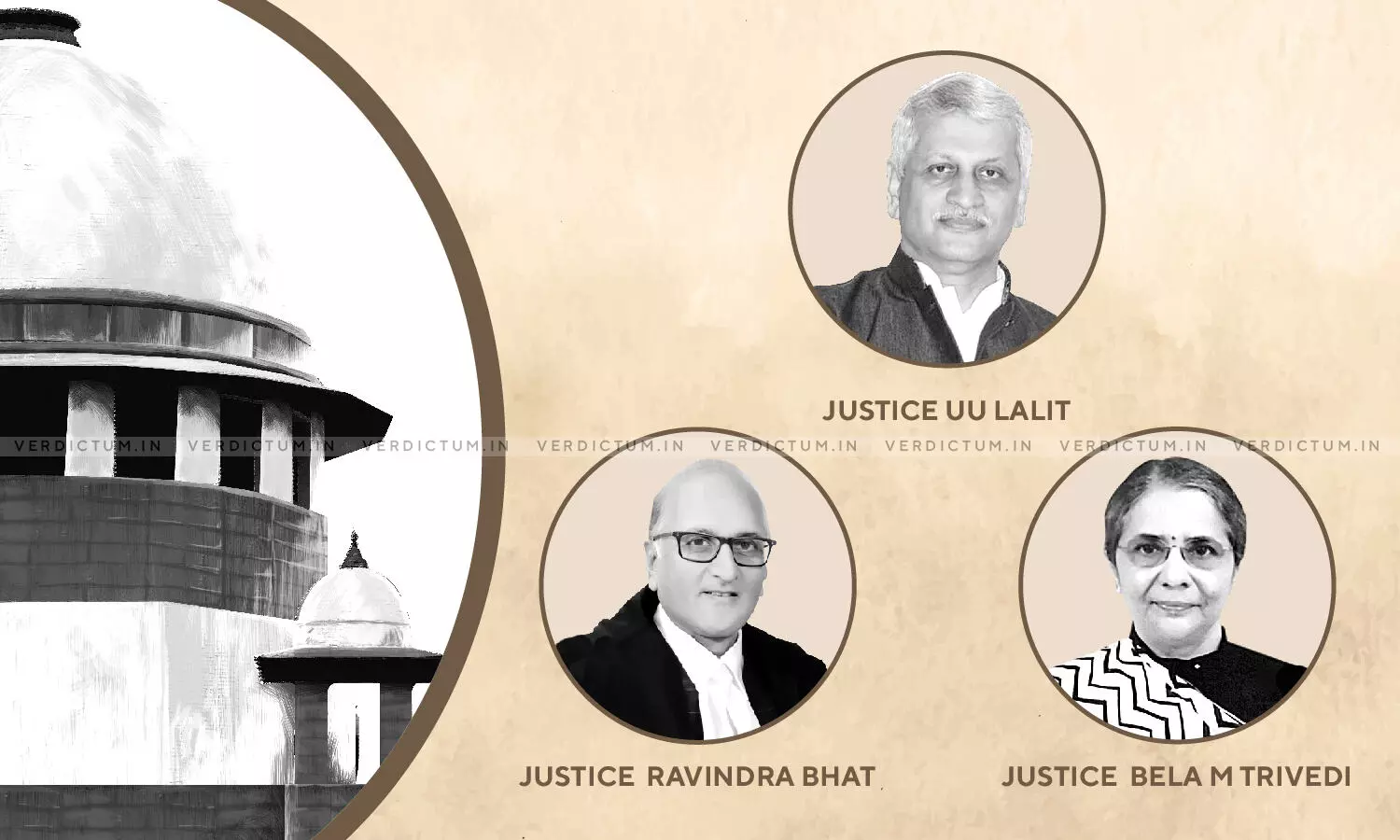
Writ Petition Alleging Delay In Disposal Of Mercy Petition In Death Sentence Case Is Not A Criminal Proceeding; Should Be Listed Before DB Of High Court - SC
 |
|A three-judge Bench of Justice U. U. Lalit, Justice S. Ravindra Bhat, and Justice Bela M. Trivedi in its order of December 9' 21 has held that a clear cut distinction was recognized on the premise that consideration of a Writ Petition founded on the ground of delay in disposal of mercy petition or application for commutation of the sentence would be distinct and different from the original proceedings which culminated in the affirmation of death sentence, which is criminal in nature.
The Court has held that the proceedings should be treated as an original proceeding, whereby an intra court appeal will be available against the decision of the single bench. The Court has also held that in order to avoid delay, "if the concerned Rules or Procedure or the provisions of the Letters Patent Appeal permit so, the High Courts may do well to list the original writ petitions in the second round of litigation before the Division Bench itself for consideration".
The Supreme Court was hearing an appeal in which the accused were tried for offences under Sections 302, 364, 201 read with Section 120 B of the IPC. The Trial Court had found them guilty and were given death sentence. The decision of the Trial Court was also upheld by the Punjab and Haryana High Court at Chandigarh. The matter was then carried to the Supreme Court where the death sentence was awarded to the Appellants and the sentence of one of the co accused was modified to life imprisonment. Two review petitions were consecutively filed in this matter which were also dismissed by the Supreme Court.
A Civil Writ Petition was filed by the Appellants before the single bench of the High Court contending that there was an undue and unexplained delay on the part of the concerned authorities in disposing of their mercy petitions and because of that, they were entitled to commutation of death sentence to one for imprisonment for life. The Writ Petition was dismissed. The correctness of this decision was challenged by the appellants by filing letters patent appeal which was again dismissed by the impugned order of the Division bench of the High Court, holding that an intra court appeal will not be maintainable since the Writ Petition is in the nature of a criminal proceeding.
The issues which were dealt with by the Supreme Court were -
i) Whether the Division Bench was at fault in finding the Letters Patent Appeal was not maintainable; and
ii) Whether the delay caused in disposing of the mercy petition or application seeking commutation of death sentence to life imprisonment was a cause to commute the death sentence.
The Apex Court noted, "Unexplained delay would be one of the grounds for commutation of sentence of death into life imprisonment and such supervening circumstances would be applicable to all types of cases, including the offences under TADA."
The Court further observed, "If a clear-cut distinction is accepted that while dealing with a writ petition based on the ground of delay in disposal of mercy petition or application for commutation, the Court does not and will not enter into the merits of the matter, the proceedings so initiated by way of writ petition are not connected with the earlier determination of guilt in regular proceedings. The nature of such proceedings by way of a writ petition would be independent, original and founded on circumstances which occurred after the guilt stood determined by the criminal courts; and, therefore, such proceedings will certainly be one where remedy by way of an intra-Court appeal, if the concerned Rules of Letters Patent so permit, would be maintainable."
Furthermore, the Court noted that the High Court was in error in finding that the LPA of the Appellants was not maintainable. The Court also held that the High Courts will do well to list such Writ Petitions directly before the Division Bench.
Accordingly, the Court allowed the appeal and set aside impugned the judgment of the High Court and remitted the matter back to the High Court for fresh consideration. The Court also restored the LPAs to the file of the High Court.
Click here to read/download the Order